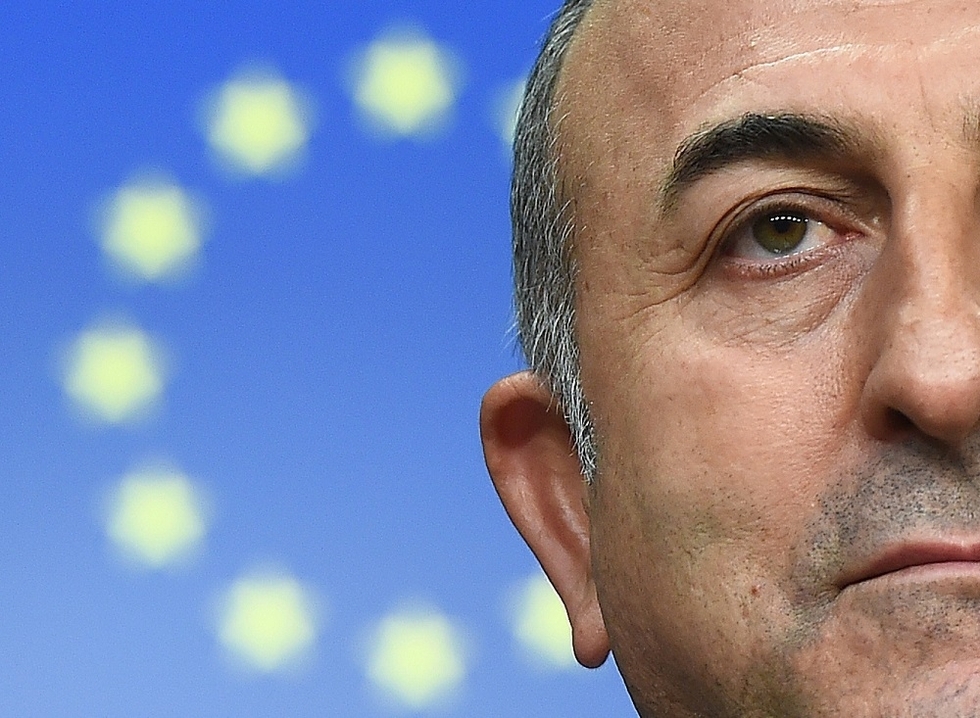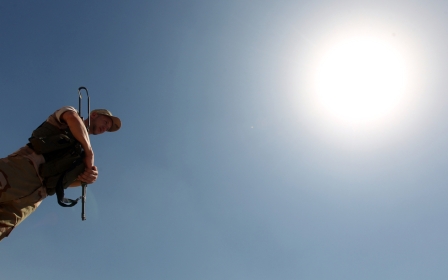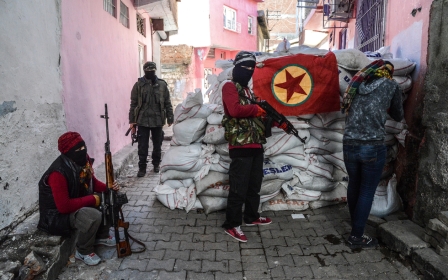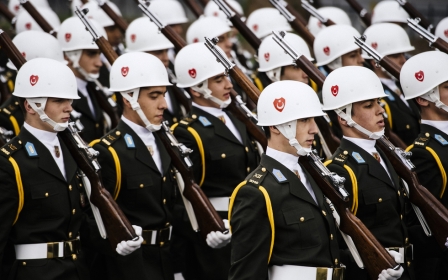Turkey says it will withdraw more troops from Iraq

Turkey plans to withdraw more troops out of northern Iraq, the Turkish foreign ministry said, a day after US President Barack Obama urged Turkish President Recep Tayyip Erdogan to "de-escalate tensions".
"Taking into account the sensitivities on the Iraqi side ... Turkey will continue the process it has already begun to withdraw its troops stationed in Mosul province," the foreign ministry said in a statement late Saturday.
Iraq earlier in the week demanded the "complete withdrawal" of Turkish troops from its territory after Turkey deployed soldiers and tanks to a military camp near the city of Mosul.
Baghdad labelled the deployment an illegal "incursion" but Turkey said it was to protect existing Turkish military trainers working with Iraqi Kurdish forces battling the Islamic State (IS) militant group.
In a phone call on Friday, Obama asked Erdogan to take steps "to de-escalate tensions with Iraq, including by continuing to withdraw Turkish military forces".
He also urged Turkey "to respect the sovereignty and territorial integrity of Iraq".
A senior Turkish official said last week that between 150 and 300 soldiers and 20 tanks were deployed to protect Turkish military trainers at the Bashiqa camp near Mosul.
Turkey began partially withdrawing troops from the area on Monday.
In its statement, the foreign ministry said there had been a "lack of communication" with Baghdad on the matter and that Ankara "would continue to coordinate with the Iraqi government over its military contribution to the country in the fight against Daesh [IS]".
Iraq 'undermines' efforts to fight IS
On Friday, Turkey's UN ambassador said Iraq's referral of its complaint about the presence of Turkish troops in northern Iraq to the UN Security Council weakens the international efforts to counter IS.
It "would serve no other purpose than to undermine the solidarity of the international community against Daesh," said Halit Cevik.
"We said it before, we will say it again, and we will keep repeating until we put an end to all the baseless allegations: Turkey has never had and will never have any interest in violating Iraq's sovereignty," Cevik said. "Nor unlike others, do we have any plans or ambitions over Iraqi territory."
He said Turkey had been under attack, not only by IS, but also by the militants from Turkey's Kurdistan Workers' Party (PKK), which has based its headquarters in Iraq's Qandil region.
The PKK is classified as a terrorist group by Turkey, the EU, the US and a number of other countries.
"We have been calling on the Iraqi government to stop the activities of the PKK. Each time, the response we received has been that the Iraqi government had no control over that part of the country," Cevik said.
"If the Iraqi government claims that it has full sovereignty over all its territory, then it is our right to expect that it prevents the use of Iraqi soil for terrorist attacks against our own territory. However, both Daesh and the PKK continue to pose significant risks to Turkey's safety and security from areas beyond the Iraqi government's reach and it is our right to exercise self-defence," he added.
The remarks by Jaafari and Cevik were followed by closed consultations among the council members, but no statement was issued after the session.
New MEE newsletter: Jerusalem Dispatch
Sign up to get the latest insights and analysis on Israel-Palestine, alongside Turkey Unpacked and other MEE newsletters
Middle East Eye delivers independent and unrivalled coverage and analysis of the Middle East, North Africa and beyond. To learn more about republishing this content and the associated fees, please fill out this form. More about MEE can be found here.




